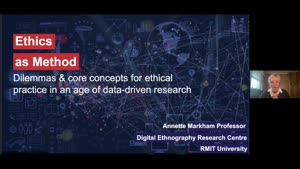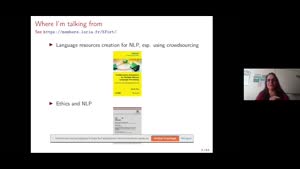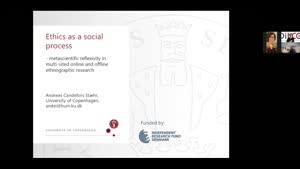DiLCo Methods Day 2023: Reflecting on fascism: Critical reflexivity as a method for exploring the offline/online nexus in a study of white male supremacism (6 October) - Catherine Tebaldi - Universität Hamburg
- Lecture2Go
- Videokatalog
- F.5 - Geisteswissenschaften
- Sprache, Literatur, Medien (SLM I + II)
- Digital language variation in context (DiLCo)
Videokatalog
1610 Aufrufe
06.10.2023
DiLCo Methods Day 2023: Reflecting on fascism: Critical reflexivity as a method for exploring the offline/online nexus in a study of white male supremacism (6 October)
DiLCo Methods Day 2023
Methods for on/offline nexus analysis: Multi-sited ethnography and heterogeneous data management
Drawing on her own research on the far right, Catherine will speak about critical feminist approaches to blended ethnography, specifically the importance of critical reflexivity at each step -- from design, to analysis, to representation. The talk will begin by defining critical approaches to reflexivity as “anti-biography” (Bourdieu & Wacquant 1992) as both an ethical approach to research, and a way to shed light on broader processes of social inequality, language and power. It will then illustrate three applications of reflexivity at different moments of research: design, analysis, and representation: first, as a research design principle, the talk will outline the reflexive methods for social media analysis she developed in her PhD. Second, as an analytic principle, the talk will share excerpts from digital field notes where this media was analyzed, to show how this reflexivity illuminates questions of normalization, circulation and uptake. Third, the talk will discuss writing and importance of reflexivity in representation. Finally the talk will return to the ethical and political implications of this analysis: after all the study of the online and offline nexus is interesting, but what really matters (to me) is to find out how Nazis, male supremacists, or white nationalists are getting across it.
Catherine Tebaldi is a linguist anthropologist at the University of Luxembourg. Her current research looks at white nationalist women’s language; how white nationalists use the conventions of women’s language to make hate sexy- to naturalize, circulate, and advertise ethnonationalism. Previously, with Dr. Katie Gaddini at University College London, she developed a blended approach to study of far-right youth politics. She obtained her PhD, on far right cultural politics, from UMass Amherst, from 2022 while publishing 10 articles in journals like Social Anthropology, International Journal of the Sociology of Language, as well as blogs and news articles. Her latest is a special issue in Gender and Language, with Dominika Baran, on Gender and Nationalism.
The 2023 Methods Day focuses on multi-sited fieldwork across on- and offline sites of interaction and discourse, and the resulting need to manage heterogeneous data, such as interviews, fieldwork notes, and digital data in text and audiovisual format. These research techniques are familiar from earlier stages of digital ethnography and discourse analysis. However, they currently gain importance and complexity as researchers turn to the ‘online/offline nexus’, i.e. the interdependence of online and offline activities in everyday private or organizational communication.
This one-day event includes presentations by researchers with intensive first-hand expertise in conducting multi-sited research and managing heterogeneous data sets. Each presentation showcases a particular research technique or case study methodology. Topics include: designing and conducting blended fieldwork; context-sensitive strategies for on/offline data collection; and software-assisted coding, categorizing and triangulating heterogeneous data.
Video production: Office for Digitality in Teaching: Faculty of Humanities (uhh.de/gw-dl-buero)
---
DiLCo (‘Digital language variation in context’) is a 3-year international research network initiated in 2021 at the University of Hamburg. The network brings together researchers from Europe and USA with expertise in computational, interactional, and ethnographic approaches to digital language and linguistics. It aims to provide a platform for the development of interdisciplinary ideas in digital language and communication research, and for early-career capacity building.
---
DiLCo (‘Digital language variation in context’) is a 3-year international research network initiated in 2021 at the University of Hamburg. The network brings together researchers from Europe and USA with expertise in computational, interactional, and ethnographic approaches to digital language and linguistics. It aims to provide a platform for the development of interdisciplinary ideas in digital language and communication research, and for early-career capacity building.
Technischer Support
Bitte klicken Sie auf den nachfolgenden Link und füllen Sie daraufhin die notwendigen Felder aus, um unser Support-Team zu kontaktieren!
Link zu der RRZ-Support-Seite

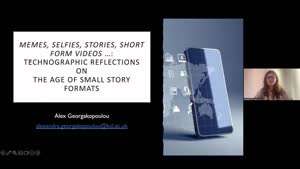
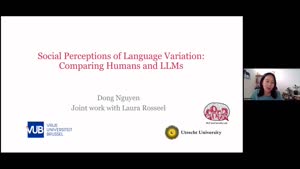
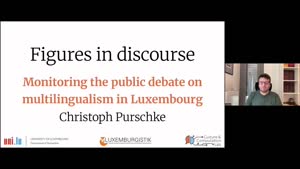
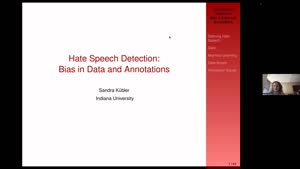
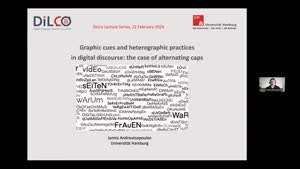
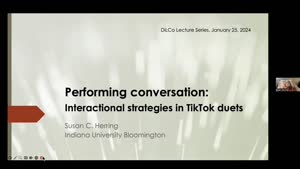
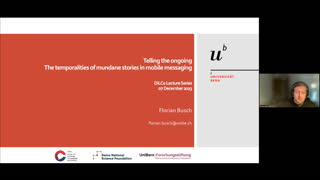
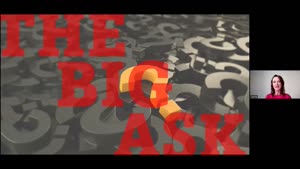
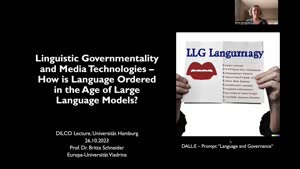
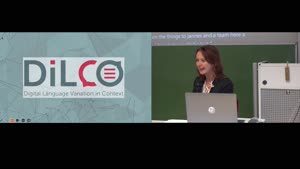
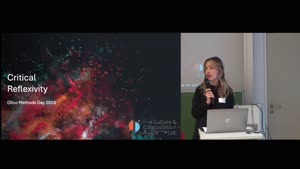
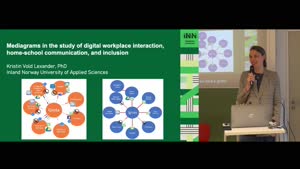
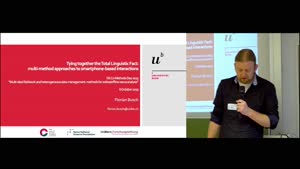
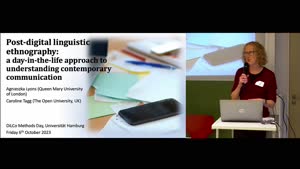
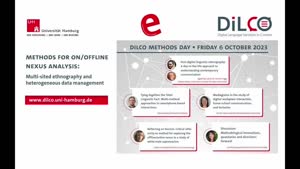
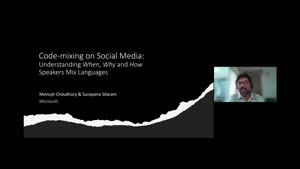
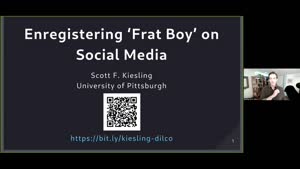
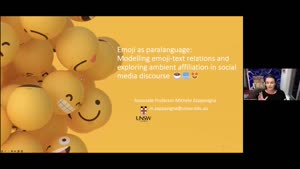
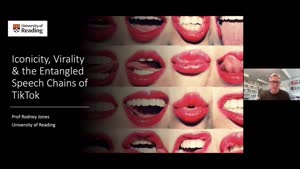
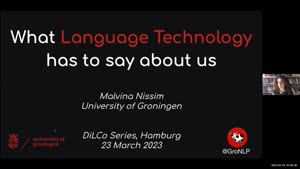
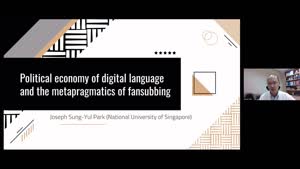
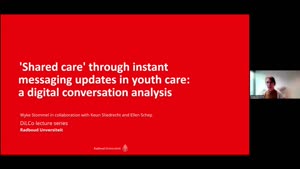
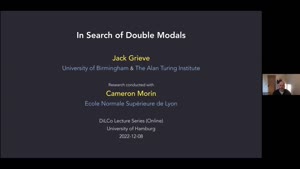
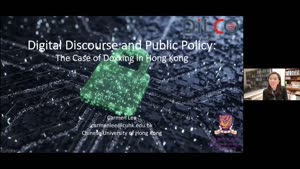
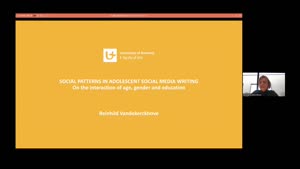
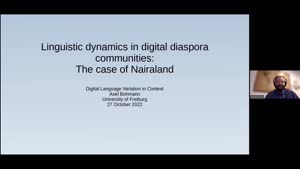
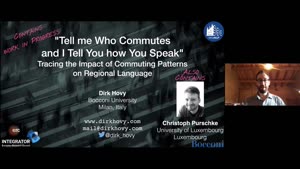
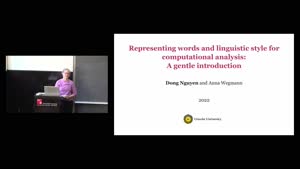
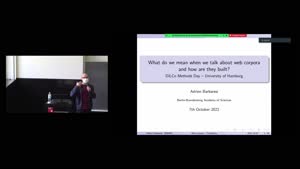
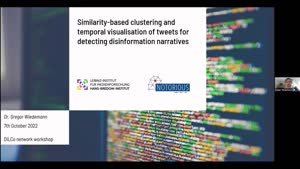
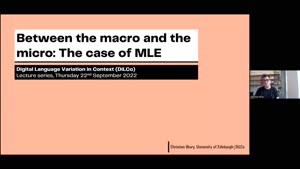
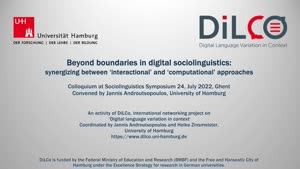
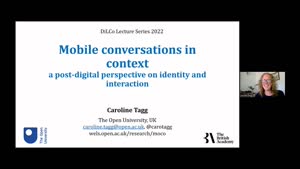
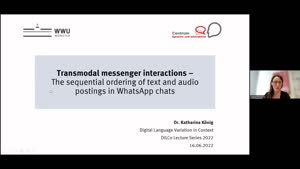
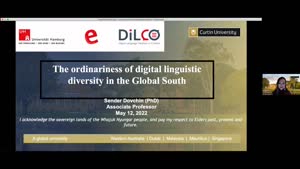
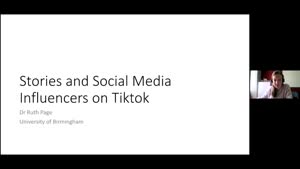
![Miniaturansicht - Graphic Prosody and political discourse on Greek Reddit [Presentation in Greek]](https://lecture2go.uni-hamburg.de/images/00.000_video-61074_2022-03-30_18-30_m.jpg?lastmodified=1663761108652)
